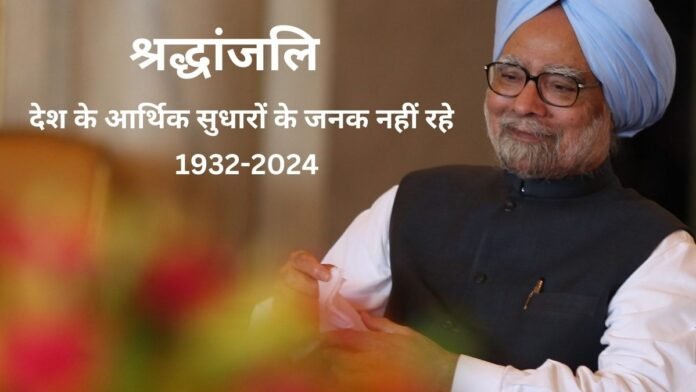former prime minister And senior Congress leader Manmohan Singh died in Delhi on Thursday. He was 92 years old. Former Prime Minister and senior Congress leader Manmohan Singh played his role as an economist, policy maker, gentleman politician and Prime Minister very well. He played an important role in the economic progress of India. He implemented economic reforms that changed the direction of the country. Manmohan Singh will always be remembered for the economic liberalization he carried out in 1991, which helped lift millions of Indians out of poverty. Singh left a unique legacy of economic reforms. Today India’s GDP remains the fastest growing GDP in the world. Manmohan Singh has a big contribution in this.
Father of 1991 economic reforms
In 1991, India stood on the verge of loan default due to a severe economic crisis. The Gulf War of 1990–91 led to a sharp rise in oil prices and a decline in remittances from Indian workers abroad. As a result, India’s foreign exchange reserves dropped to less than $6 billion, barely enough to cover two weeks of the country’s imports. After this Manmohan Singh opened the door of liberalization. Within no time, India’s economy started moving from crisis to progress. Manmohan Singh’s era as a policy maker in the 1990s to 2000s will always be remembered.
Governor of the Reserve Bank of India (1982–1985)
During his tenure as Governor of the Reserve Bank of India, Dr. Manmohan Singh oversaw important legal reforms in the banking sector, including the introduction of a new chapter in the Reserve Bank of India Act and the establishment of the Department of Urban Banks. After his tenure at the bank, Singh held various positions before being appointed Finance Minister. His tenure in this role is known for his leadership in initiating liberalization and implementing sweeping economic reforms in India. His expertise in macroeconomic management laid the groundwork for the reforms he later implemented as Finance Minister.
The journey of the Prime Minister of India from 2004-2014
Manmohan Singh served as the Prime Minister of India for two consecutive terms from 2004 to 2014. His government focused on social welfare programs including the National Rural Employment Guarantee Act (NREGA) and the Right to Information Act, which aimed to empower the rural poor and improve governance. Singh’s leadership ensured that India dealt with the global financial crisis better than many other countries, and the country remained relatively unaffected.
Chief Economic Advisor (1982–1985)
Manmohan Singh served as the Chief Economic Advisor to the Government of India, and advised on important economic policy matters. Furthermore, he held the post of Secretary in the Ministry of Commerce and helped India deal with international trade issues.
Allegations of 2G scam were made
Despite all the successes, Singh’s tenure as Prime Minister was full of challenges. His government faced a lot of criticism over corruption scandals, including the high-profile 2G spectrum allocation case, the Commonwealth Games scam and the Colgate controversy. These tarnished the image of his administration and largely contributed to the electoral defeat of the Congress Party in 2014.




